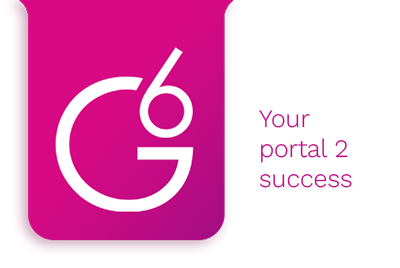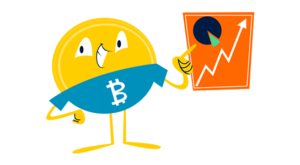Has your sales team been struggling to reach and communicate with your target audience effectively? Are you losing sales opportunities because of it?
Small businesses everywhere find connecting with their target audience challenging because they don’t understand the differences between B2B and B2C sales!
Hi, my name is AJ! After selling my company for multiple seven figures, I started Small Business Bonfire (SBB) to help other business owners.
My business wasn’t successful right away. However, learning the differences between sales models helped immensely!
Want to learn whether B2C selling is suitable for your company? Keep reading!
Key Takeaways
B2C sales are when reps sell products or services directly to the end user.
B2C selling has a much shorter sales cycle than B2B sales.
The benefits of a B2C model include less complex deals and limited decision-makers.
Customer service is an integral piece of the B2C sales process because it promotes customer retention.
Business-to-consumer (B2C) sales sell products, services, or information directly to end users or consumers.
You can see this business model in various industries, such as:
RetailHospitality Services (hairdressing or auto repair)
Further, the interaction in B2C sales is often more straightforward than B2B (business to business) sales, as the business sells to an individual consumer, not another company.
In the next section, I’ll explain B2B sales and highlight everything you need to know about this sales method!
Business-to-business (B2B) sales involve transactions between companies rather than between a company and individual consumers.
This sales model is prevalent in sectors where companies require goods or services in large quantities for production or operation, such as:
ManufacturingSoftware Consulting
Lastly, the B2B sales process is often more complex and longer, encompassing multiple stakeholders.
Remember, the B2C sales cycle is much simpler because it (usually) only involves one decision-maker, not multiple stakeholders!
As you can imagine, there are several differences between business-to-consumer and business-to-business sales models.
Below, I’ve compiled the most relevant distinctions you must know!
In B2C sales, the decision-making process is usually brief and driven by the consumer’s needs and desires, resulting in a shorter sales cycle.
On the other hand, B2B sales often involve a longer cycle because of the following factors:
Involvement of multiple stakeholdersComplex negotiations Substantial financial investments
Put simply, the process is shorter for B2C because fewer people are involved, and the transaction value is lower (see the next section).
B2C sales have a lower transaction value than B2B sales primarily because individual consumers generally have less purchasing power than businesses.
Also, the requirements in B2C sales are usually smaller and less complex, leading to lesser overall costs!
When businesses sell to consumers, there’s usually a single decision-maker who alone determines whether or not to make the purchase based on their needs and preferences!
Remember, in B2B, multiple people decide whether to purchase the product or service.
Because stakeholders can have differing opinions, the sales process is more complex and lengthy.
In the B2C sales model, companies consider the end consumer ‘uneducated’ due to their lack of technical knowledge or industry-specific insights about the product or service.
However, in B2B, buyers deeply understand the company’s product or service because it directly pertains to their operations.
In B2C, consumers usually pay for the product or service immediately at the point of sale.
In contrast, sellers can structure B2B payments over time with 30 or 60-day payment terms.
B2C sales reps handle a higher number of leads due to the following things:
Shorter sales cycle Less complex transactions
However, in B2B sales, a sales rep might handle fewer but more high-value leads due to the longer cycle and more complex negotiation process!
Sales experience in B2C is typically more transactional and focused on meeting immediate consumer needs.
Meanwhile, in B2B, experience is often more consultative, requiring a deeper understanding of the client’s business and long-term needs.
Still, regardless of the sales model, reps MUST develop meaningful customer relationships!
The customer acquisition cost (CAC) in B2B sales is typically higher than in B2C due to the following things:
Longer sales cyclesMore complex negotiations The need for a more personalized, consultative approach
CAC measures how much money a company spends to convert a lead into a paying customer!
In the B2C business model, the agents are responsible for more than simply selling products.
Of course, B2C sales representatives sell products directly to the end consumers.
Therefore, they must present and explain the features of products or services in a manner that aligns with the customer’s personal needs and preferences.
On top of that, B2C retail sales agents must do the following things:
Handle customer inquiriesNegotiate deals Process immediate paymentsEnsure a seamless and satisfactory customer experience
The business-to-consumer sales process consists of the following steps:
Lead generation Needs assessment Product demonstration Handling objections Closing the deal Customer service
Lead generation is a marketing process that captures the interest of potential customers in a product or service to cultivate a sales pipeline.
Lead generation is crucial as it allows businesses to attract potential customers, who sales reps can convert into actual customers.
Put simply, lead generation is a significant factor that fuels a company’s revenue growth.
A needs assessment is a systematic process that businesses use to identify and understand the following things:
Customer needsCustomer challengesCustomer behavior patternsGaps within their operations
Further, small businesses conduct needs assessments to do the following things that other businesses might forget:
Understand their customer’s needs betterPinpoint areas for improvement or growth Inform strategic decision-makingDrive tangible improvements in their products, services, or operational processes.
Product demonstrations are vital because they effectively showcase the features and benefits of a product.
As a result, direct sellers ensure consumers can visualize the product’s value and utility in their everyday lives!
Handling objections is a critical skill for sales representatives since it allows them to address and mitigate any concerns or resistance a consumer might have towards the product or service.
Further, sales reps in brick-and-mortar stores and online intermediaries can manage objections by doing the following things:
Empathizing with the customer’s concernsProviding clear and concise information to alleviate their doubts Guiding the conversation towards the unique value and benefits the product or service can offer the consumer
Closing the sale is when a salesperson successfully convinces a prospect to purchase a product or service!
Therefore, this step completes the transaction and turns a lead into a customer.
Exemplary customer service is the backbone of a company’s reputation!
When a small business emphasizes a customer-centric business model, it’s a crucial differentiator from other businesses.
Further, excellent customer support is critical for in-person and online retailers for the following reasons:
It fosters customer loyaltyIt encourages consumers to buy from the business repeatedlyIt promotes positive word-of-mouth marketing
Put simply, excellent customer service can significantly contribute to a company’s growth and profitability!
Now, I’ll provide two business-to-consumer examples.
These real-life examples will help you notice the key differences between B2B and B2C sales!
Apple Inc. offers a prime example of a successful B2C business model.
The tech giant designs, manufactures, and markets consumer electronics and software, including the iPhone, iPad, and Macbook series.
Further, Apple’s sales strategy revolves around creating a unique customer experience through the following elements:
Its minimalist product design Sleek, user-friendly retail stores Compelling online shopping platform
Also, by positioning its products as premium and innovative, Apple successfully attracts consumers willing to pay a high price for superior quality and status symbols!
Amazon.com, an e-commerce sales giant, is another brilliant example of B2C sales.
For instance, the company allows consumers to purchase everything from books to electronics, clothing, and groceries.
Amazon’s value proposition revolves around the following aspects:
Convenience and variety, offering a vast array of products Competitive pricesFast shipping via its Prime subscription service
Lastly, by prioritizing customer satisfaction, Amazon has established itself as a one-stop shop for diverse consumer needs.
Did you know there are different kinds of business-to-consumer sales types?
For instance, some ways companies can sell products with this model include:
Direct selling Retail selling B2C dropshipping Community-based Fee-based
Direct sellers are individuals or small businesses that sell products or services directly to consumers, bypassing traditional retail structures.
Further, direct sellers interact with customers one-on-one, often in non-store environments such as door-to-door or online intermediaries.
Therefore, the industries that commonly use this model include the following:
CosmeticsHome goods Health and wellness
Retail selling is when businesses sell products directly to the end consumer from a physical location such as a:
StorefrontMall Market
Retail selling involves the transaction of goods for personal or household consumption.
Therefore, this model leverages various strategies to attract, engage, and satisfy customers!
Also, retail selling often emphasizes visual merchandising, customer service, and a variety of product offerings.
B2C dropshipping is a business model where retailers sell products to consumers without physically stocking the items themselves.
Instead, when they sell something, the retailer purchases the product from a third-party supplier, who then ships it directly to the consumer.
This strategy reduces overhead for the retailer, making it a popular option for online e-commerce communities.
Community-based sales refer to businesses leveraging local communities to sell products or services.
A community-based selling approach often involves building strong relationships within a community and selling products that meet its members’ specific needs, interests, or values.
Further, you can see community-based sales in the following contexts:
Farmers’ marketsLocal artisan shops Businesses that thrive on community support and loyalty
Fee-based sales involve businesses offering consumers services or product access for a recurring fee, typically in the form of subscriptions.
A fee-based approach provides consumers continuous, often unlimited, access to a company’s service or product.
Further, some examples include:
Streaming platforms like Netflix or HuluSubscription boxes for various products Ongoing memberships at fitness centers
Here are six B2C sales strategies your company can use!
Understanding your customers is fundamental because it allows a company to tailor its products, services, and marketing strategies to meet their needs and preferences.
As a result, understanding your target audience leads to increased customer satisfaction and loyalty.
Establishing rapport is crucial as it builds trust and fosters open communication.
Therefore, sales teams can create successful sales relationships and encourage repeat business.
Engaging with existing customers is vital as it does the following things:
Encourages customer retentionFosters loyaltyLead to repeat business and referralsDrive long-term profitability for the business
Focusing on value rather than features is crucial in B2C sales because it emphasizes the practical benefits and solutions the product or service provides to the customer.
Therefore, it shows how the products can enhance their life or solve their problems rather than merely listing the product’s characteristics.
Delighting new and existing customers is paramount because it fosters customer loyalty and retention and is a powerful tool for attracting new customers through positive word-of-mouth referrals.
Measuring your sales performance is essential as it does the following things:
Provides valuable insights into the effectiveness of your sales strategiesAllows you to identify areas of success or improvement Make informed decisions for future planning and growth
Lastly, I’ll cover the common challenges in B2C selling, which include the following:
Building rapport Handling customer objections Overcoming face-to-face conversations Dealing with product returns
Here’s more about these difficulties and how you can overcome them!
Building rapport in B2C sales can be challenging due to varying customer personalities, preferences, and expectations.
A good sales strategy requires genuine understanding, effective communication, and empathy.
Further, companies can overcome this hurdle by:
Investing in customer relationship management (CRM) tools Providing regular staff training on communication and customer service skillsUtilizing customer feedback
Good rapport helps tailor interactions to meet individual customer needs, effectively building stronger relationships.
Handling objections in B2C sales is a challenge due to customers’ diverse concerns and hesitations, which can stem from price, product functionality, or competition.
To overcome this, sales teams must adopt active listening skills to understand the customer’s perspective and respond effectively.
Also, training in objection handling techniques and a comprehensive understanding of their product or service can help sales teams address objections convincingly.
As a result of these skills, sales teams increase their chances of securing a sale!
Overcoming face-to-face conversations in B2C sales can be daunting because they involve direct, personal interaction.
These interactions can lead to high-pressure situations and potential rejection.
Also, the unpredictability of consumer reactions adds a level of complexity.
Fortunately, sales teams can overcome these challenges by:
Thorough preparationGetting trained in interpersonal skills Learning to handle rejectionUnderstanding customer needs Delivering personalized solutions
Further, role-play exercises and technology can also be beneficial for rehearsing scenarios and building confidence!
Dealing with returns is a considerable challenge in B2C sales.
Returns can impact revenue, disrupt inventory management, and damage customer relationships.
Customer dissatisfaction, product faults, or simple buyer remorse are the primary reasons for returns.
However, businesses can mitigate these issues by:
Implementing robust quality control measures Providing detailed, accurate product descriptions that meet customer expectationsImplementing a seamless, customer-friendly return policy
Leveraging technology, like an effective returns management system, can streamline the process, making tracking and managing returns efficiently easier.
This focus on the customer experience, even in the face of returns, can drive customer retention, boost customer satisfaction rates, and lower customer churn.
Now that you have all the necessary information about B2C sales, it’s time to decide if it’s a good model for your company!
Remember, B2C reps sell products or services directly to the consumer.
Also, some challenges of this model include building strong customer relationships and dealing with product returns.
Let us know in the comments section whether you’ll use B2C selling in your company!
The post What is B2C Sales? Small Business Guide appeared first on Small Business Bonfire.
—
Blog powered by G6
Disclaimer! A guest author has made this post. G6 has not checked the post. its content and attachments and under no circumstances will G6 be held responsible or liable in any way for any claims, damages, losses, expenses, costs or liabilities whatsoever (including, without limitation, any direct or indirect damages for loss of profits, business interruption or loss of information) resulting or arising directly or indirectly from your use of or inability to use this website or any websites linked to it, or from your reliance on the information and material on this website, even if the G6 has been advised of the possibility of such damages in advance.
For any inquiries, please contact [email protected]




